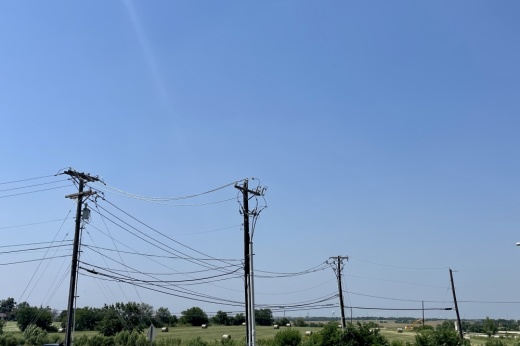The Electric Reliability Council of Texas, which operates the state power grid, issued a “weather watch” for June 25-30. Weather watches are used to notify Texans ahead of periods of high demand, but no action is necessary.
Grid conditions are normal during a weather watch.
If the energy supply gets low, ERCOT may ask Texans to voluntarily conserve energy during a certain time period. Voluntary conservation notices are typically issued in the evening, when more people are home and using electricity.
On June 20, officials asked residents to reduce their energy use from 4-8 p.m. This was entirely voluntary and differs from an emergency alert.
During hot weather, officials recommend turning up the temperature in homes, limiting use of major appliances, turning off lights and closing blinds to conserve energy and stay cool.
As of 3 p.m. June 23, ERCOT predicted demand would peak at 4 p.m. June 27, when Texans are expected to use over 84,000 megawatts of electricity. In that case, over 96,000 megawatts would be available to power homes and businesses across the state.
The agency’s six-day supply and demand forecast is updated regularly.
Texans can sign up here to receive weather watches and other alerts from ERCOT.
Beating the heat
The Texas Department of State Health Services reported elderly Texans, young children, people with chronic illnesses and those without access to air conditioning are most at risk for heat stroke.
Signs of heat stroke include headaches, heavy sweating, muscle cramps, weakness, dizziness, nausea and a rapid pulse.
“Staying in an air-conditioned area, either at home or at public places like malls, libraries or community centers, is the best way to combat heat,” according to a June 20 news release.
Texans should drink plenty of water and avoid caffeine, alcohol and sugary drinks, DSHS officials said. According to the release, people and pets should never be left in parked cars, which can reach deadly temperatures “within minutes."
To find a cooling center, click here. Texans can also call 211 and select option 1 for information about cooling centers.





